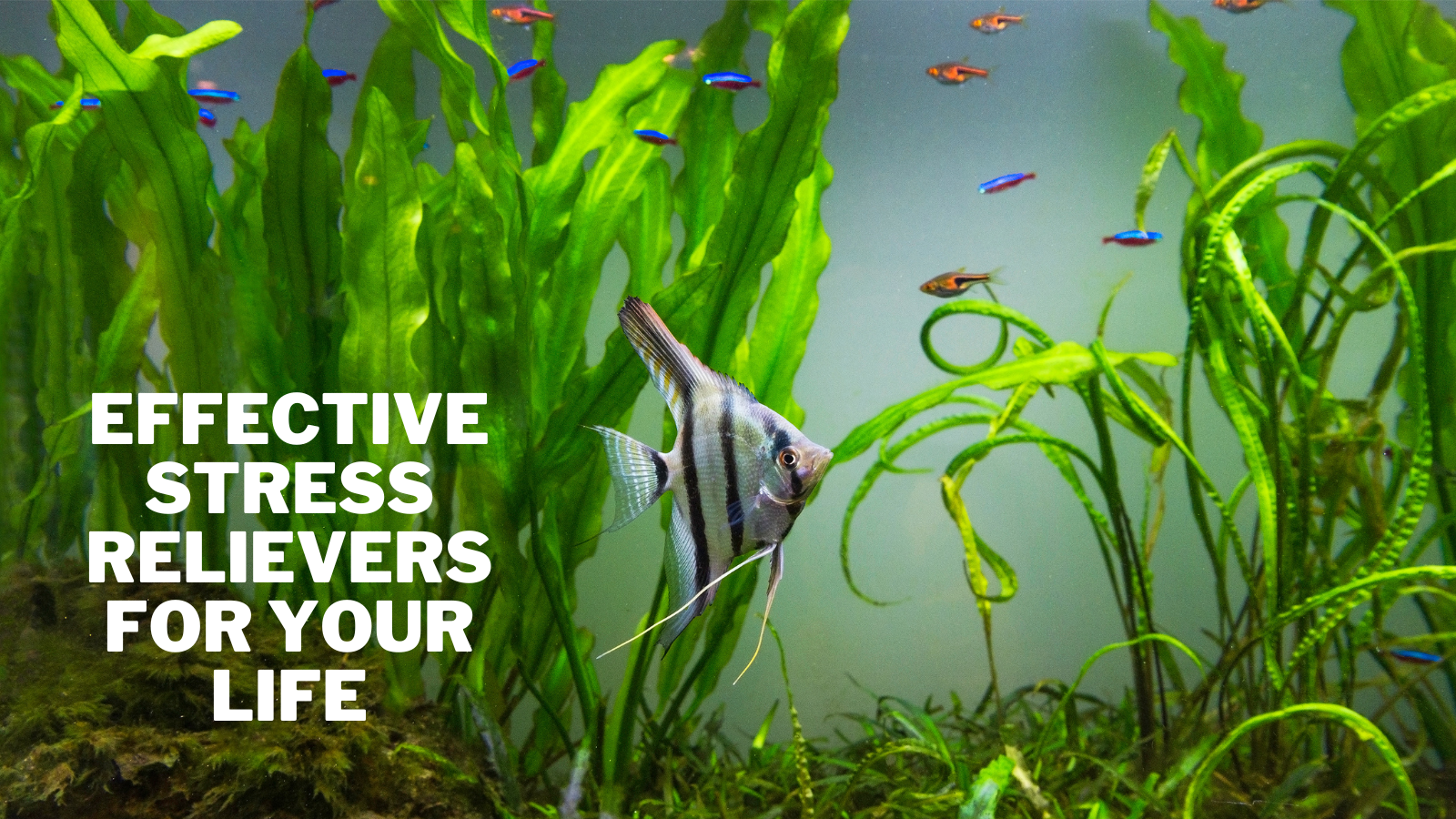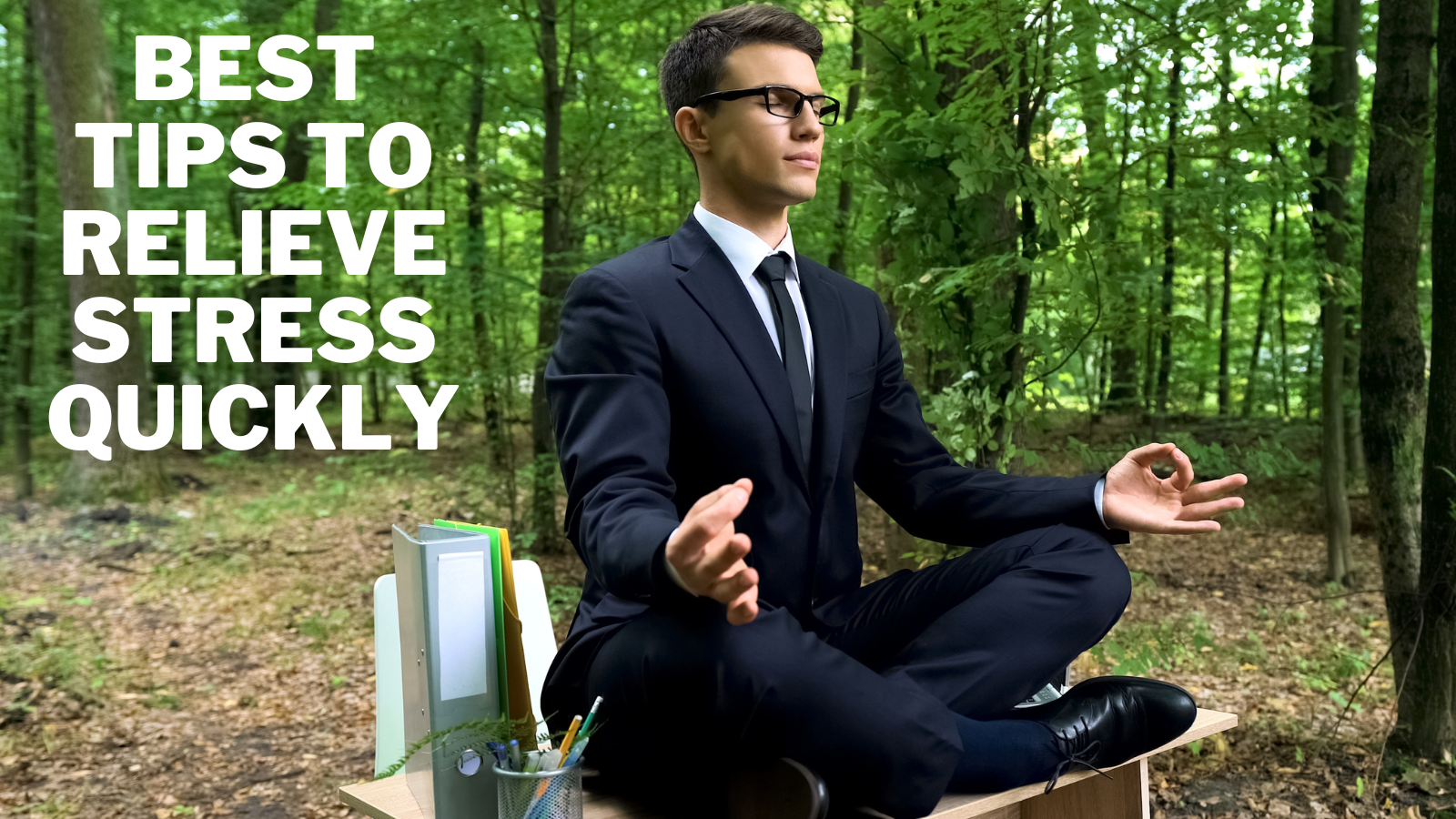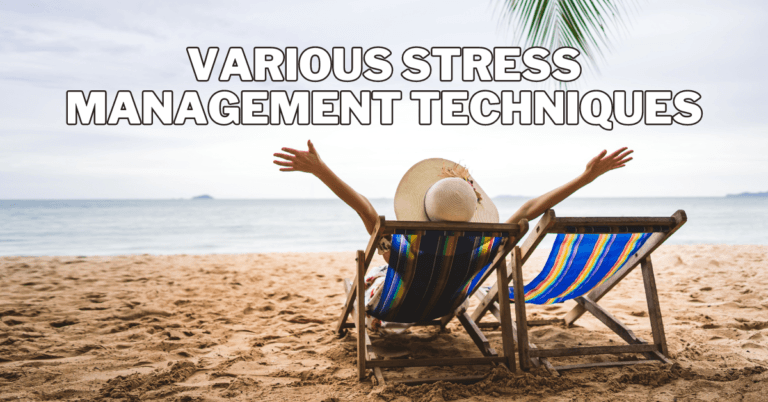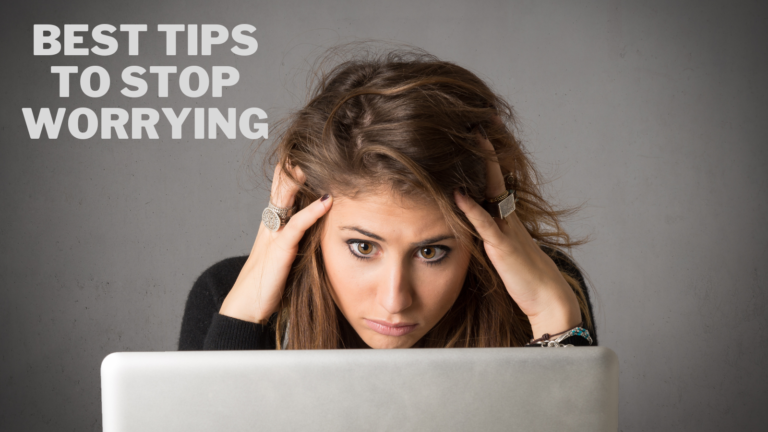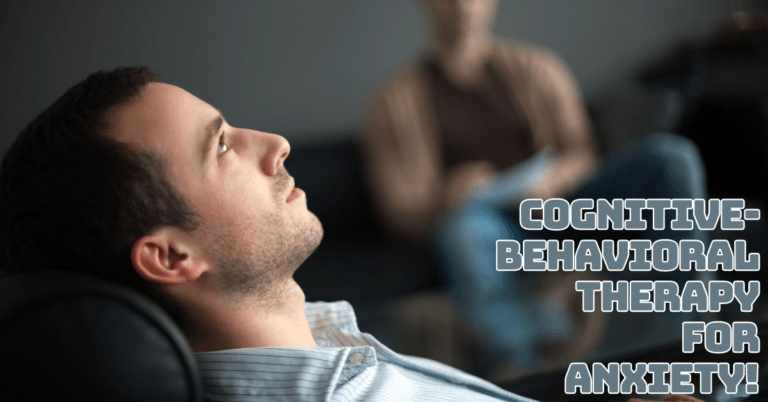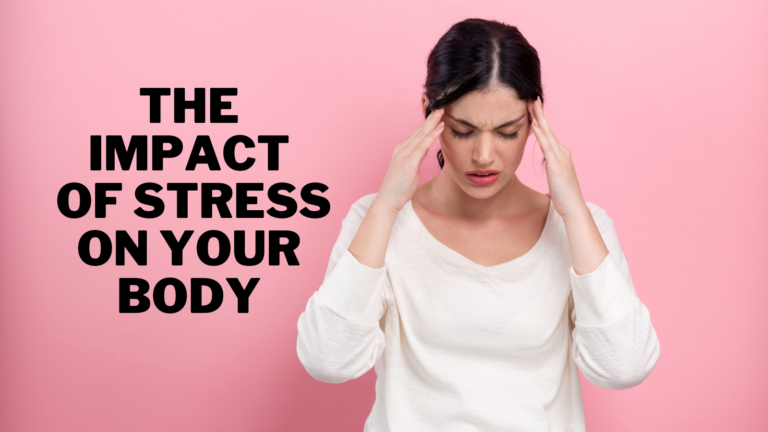Effective Stress Relievers For Your Life
Effective Stress Relievers For Your Life
Life is full of stress, whether from tiny setbacks or major calamities. Even though you are powerless over your circumstances, you are always responsible for how you respond to them.
Excessive or chronic stress may hurt your well-being. This makes having effective stress relievers that can calm your body and mind essential.
Stress relievers can bring order and tranquillity back into your life's disarray. Remedies for stress need a little time or consideration. If you need quick stress relief because it has gotten out of control, try one of these solutions.
This article will explore a range of tried-and-tested stress relievers to help you regain control and find inner peace. These strategies are simple, accessible, and adaptable to various lifestyles.
Whether you're a busy professional, a student facing exams, or someone dealing with personal difficulties, incorporating these stress relievers into your routine can make a significant difference.
Let's embark on this journey together and uncover effective stress relievers to improve your life.
How Stress Relievers Enhance Your Quality of Life
Feeling stressed or nervous is common for many people. Many Americans say they worry or are stressed out every day.
Many people deal with stress daily. Work, family issues, health issues, and financial obligations are just a few things that can make daily life more stressful.
Stress must be distinguished from mental health issues like anxiety and depression, which require specialized medical attention. Additional arguments for the significance of stress relievers in our lives include the following:

1. Improving Physical Health
Extended stress can hurt our physical health. It may cause persistent discomfort, a weakened immune system, an increased risk of cardiovascular conditions, disturbed sleep patterns, and cardiovascular diseases.
Stress relievers assist in combating these physical impacts by encouraging relaxation, easing muscle tension, enhancing sleep quality, and bolstering the immune system.
We may safeguard our bodies from the damaging effects of ongoing stress by implementing stress relief practices into our daily lives.
2. Increasing Productivity And Focus
Focusing and carrying out duties effectively under great stress is frequently difficult.
Deep breathing techniques, meditation, and physical activity are excellent stress relievers that can help us focus more clearly.
Our productivity improves, we commit fewer mistakes, and we think more clearly when we manage our stress.

3. Enhancing Emotional Well-Being
Enhancing Emotional Well-Being Stress can cause emotional instability, mood fluctuations, and general unhappiness.
Stress relievers give us a vital release valve for our feelings so we can understand and control our emotions efficiently.
We may learn to control and encourage positive emotions and improve our general emotional well-being through strategies like mindfulness, writing, and participating in our favourite hobbies or activities.
4. Supporting And Building Healthy Relationships
Prolonged stress can deteriorate our bonds with friends, family, and coworkers. We could become impatient, irritated, and less open to deep connections.
We can lessen tension and enhance communication capacity by adding stress management practices into our daily lives.
As a result, our relationships get stronger, empathy is encouraged, and our network of friends and family is strengthened.

5. Improved Overall Quality Of Life
Ultimately, the stress reducers help raise the overall quality of life. Effective stress management frees up time for enjoyment, rest, and self-care.
We work to achieve a state of equilibrium and contentment that enables us to face life's difficulties with fortitude and hope.
6. Reduced Burnout
Burnout is a condition of physical, mental, and emotional weariness that can be brought on by prolonged stress.
Burnout can negatively impact our performance at work or school, interpersonal relationships, and general happiness.
By giving us the skills to control our stress levels, recuperate, and keep a good work-life balance, stress relievers help us avoid burnout.
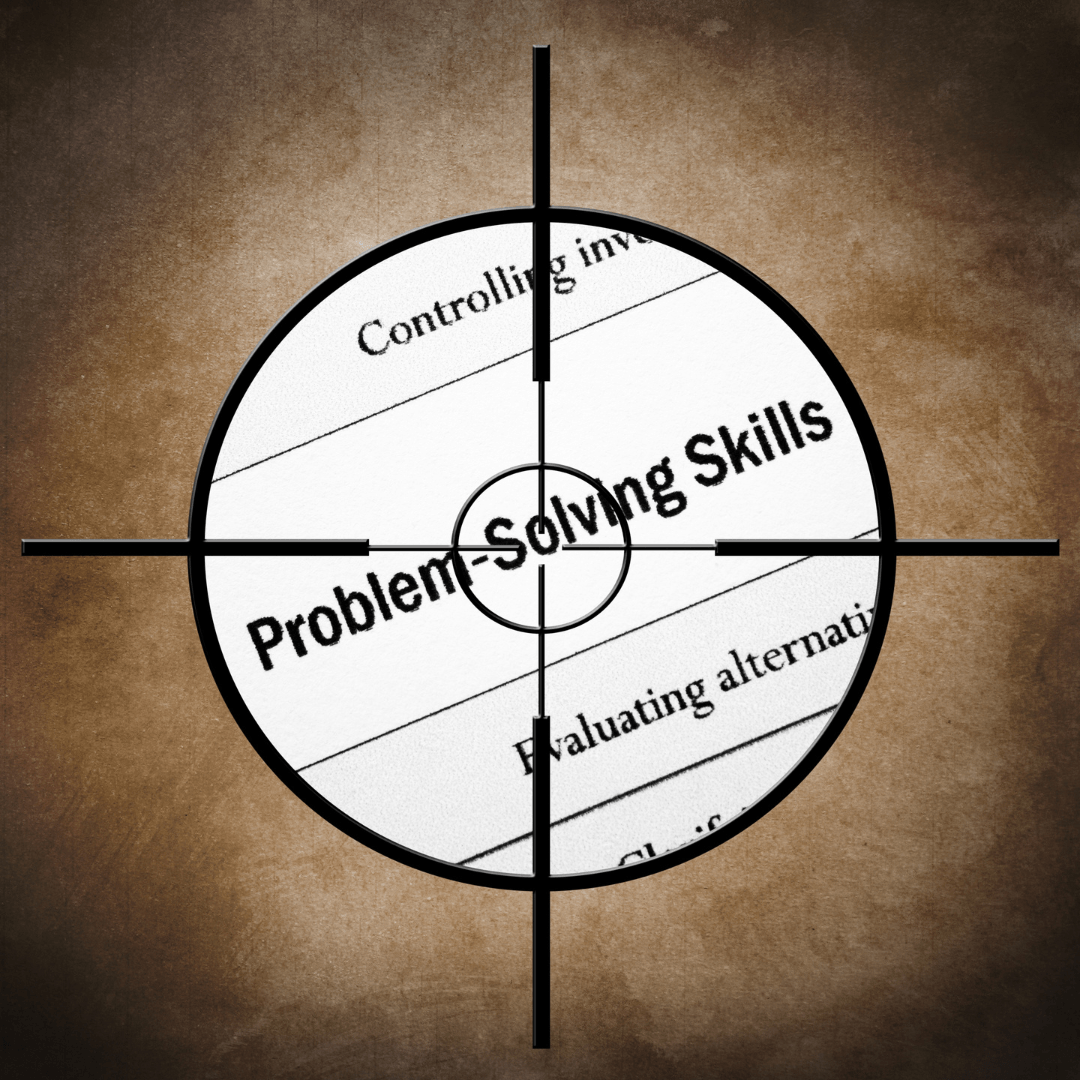
7. Improve Problem-Solving Skills
When under stress, thinking creatively and developing ideas that work can be difficult.
We can strengthen our problem-solving abilities and get our brains in order by using stress-relieving activities like hobbies, mindfulness exercises, or asking for support from others.
We can approach problems with a calmer perspective and more original and efficient problem-solving skills by minimizing our stress levels.
8. Prevent Stress-Related Health Conditions
Chronic stress is linked to various health conditions, including hypertension, digestive disorders, and autoimmune diseases.
By actively practicing stress relief techniques, we can reduce the risk of developing these stress-related health conditions. Prioritizing our well-being through stress management can positively affect our physical health.
Remember, stress is a normal part of life, but it doesn't have to overpower or control us. By incorporating stress relievers into our lives, we empower ourselves to proactively manage stress, enhance our well-being, and lead a more balanced and fulfilling life.
Effective Stress Relievers For Your Life
Stress has become an unpleasant companion in our fast-paced life, negatively affecting our happiness and well-being.
There are stress-relieving techniques that can help us regain our inner balance. Here are some Effective Stress Relievers For Your Life:

1. Mindfulness And Meditation
Several advantages for our mental and emotional health come from mindfulness and meditation, which are effective stress relievers.
Mindfulness entails bringing our awareness to the feelings, ideas, and sensations that arise while consciously focusing on the present moment without judgment.
We may increase our self-awareness and acceptance by engaging in mindfulness practices, enabling us to react to stressors rationally and compassionately.
Contrarily, meditation calls for time to calm the mind and concentrate our attention. Focused breathing, a body scan, or loving-kindness meditation are a few methods that can be utilized to achieve this.
Studies have indicated that regular meditation lowers blood pressure and stress hormone levels and enhances psychological health.
Improving our capacity for staying calm under pressure aids us in developing stress tolerance.
Additionally, practicing mindfulness and meditation can help us unwind, which enables us to switch off automatic pilots and appreciate the present.
They can also strengthen our capacity for emotion control, heighten our ability to focus and promote a happier attitude toward life.
We may harness the transforming potential of mindfulness and meditation by making them a regular part of our lives.
This will help us feel less stressed and help us develop a deeper sense of inner peace and well-being.

2. Physical Exercise
Exercise is an effective way to reduce stress and has several advantages for the body and mind.
Endorphins are biological substances released by physical exercise and serve as painkillers and mood elevators in the brain.
These endorphins provide euphoria and a feeling of well-being, which helps to lessen stress and anxiety.
Physical activity releases tension and pent-up energy, whether it's through cardiovascular workouts like running, cycling, or swimming or activities that emphasize strength and flexibility, like weightlifting or yoga.
Additionally, it aids in enhancing blood flow, which nourishes the brain and fosters mental clarity. Regular exercise helps lower stress levels by boosting mood, self-confidence, and sleep.
By including physical activity in our daily routines, we can benefit from exercise's benefits on our mental and emotional health, resulting in a more centred and resilient approach to stress management.

3. Deep Breathing Exercises
Simple yet powerful stress relievers and deep breathing techniques can be used anywhere and anytime.
Deep breathing causes the body to relax, which helps offset the physiological consequences of stress.
Diaphragmatic breathing, commonly called belly breathing, involves inhaling deeply into the abdomen instead of the chest.
By focusing on taking slow, deep breaths, we stimulate the vagus nerve, which sends signals to the brain that cause blood pressure to fall, heart rate to settle down, and a state of calmness to be encouraged.
Another technique is “box breathing,” which involves taking a deep breath in for four counts, holding it for four counts, exhaling for four counts, halting for four counts, and repeating the cycle.

4. Nature And Outdoor Activities
Effective stress relievers, wildlife and outdoor pursuits provide a healthy and reviving retreat from the pressures of daily life.
When we spend time in nature, whether gardening, hiking through the woods, or just relaxing in a park, we feel at peace with ourselves and connected to the rest of the natural world.
According to research, the stress hormone cortisol can be lowered, blood pressure can be reduced, and mood can be improved by spending time in nature.
Our senses are calmed by nature's sights, sounds, and smells, which can help us recover from mental exhaustion and focus again.
Furthermore, physical activity is a common component of outdoor pursuits, which produces endorphins and further helps to reduce stress.
Unplugging from electronics, taking in some fresh air, and re-establishing one's connection to the present moment are all made possible by engaging with nature.
The healing power of the natural world may be accessed, our energy can be restored, and a sense of peace can be felt in the middle of the everyday commotion by introducing nature and outdoor activities into our lives.

5. Time Management And Prioritization
Our hectic lives need vital stress-relieving strategies like time management and prioritization. Increased stress levels might result from feeling overburdened with many obligations and tasks.
However, we may reclaim our sense of control and lessen stress by practicing efficient time management techniques.
To make reasonable goals and utilize time effectively, tasks must be organized, and a plan or to-do list must be created.
We can avoid feeling overwhelmed by concentrating on the most important tasks by setting priorities based on their importance and urgency.
Since neglecting our well-being can lead to higher stress levels, scheduling time for relaxation and self-care is equally crucial.
We can rebalance our lives by consciously making time for the pursuits that make us happy and renew us, such as exercise, hobbies, or time with loved ones.
Effective time management and prioritization make it easier to manage our commitments and make time for self-care and stress relief.
We may reach a more peaceful and meaningful existence by implementing these habits, which will also help us feel more in control and less stressed.
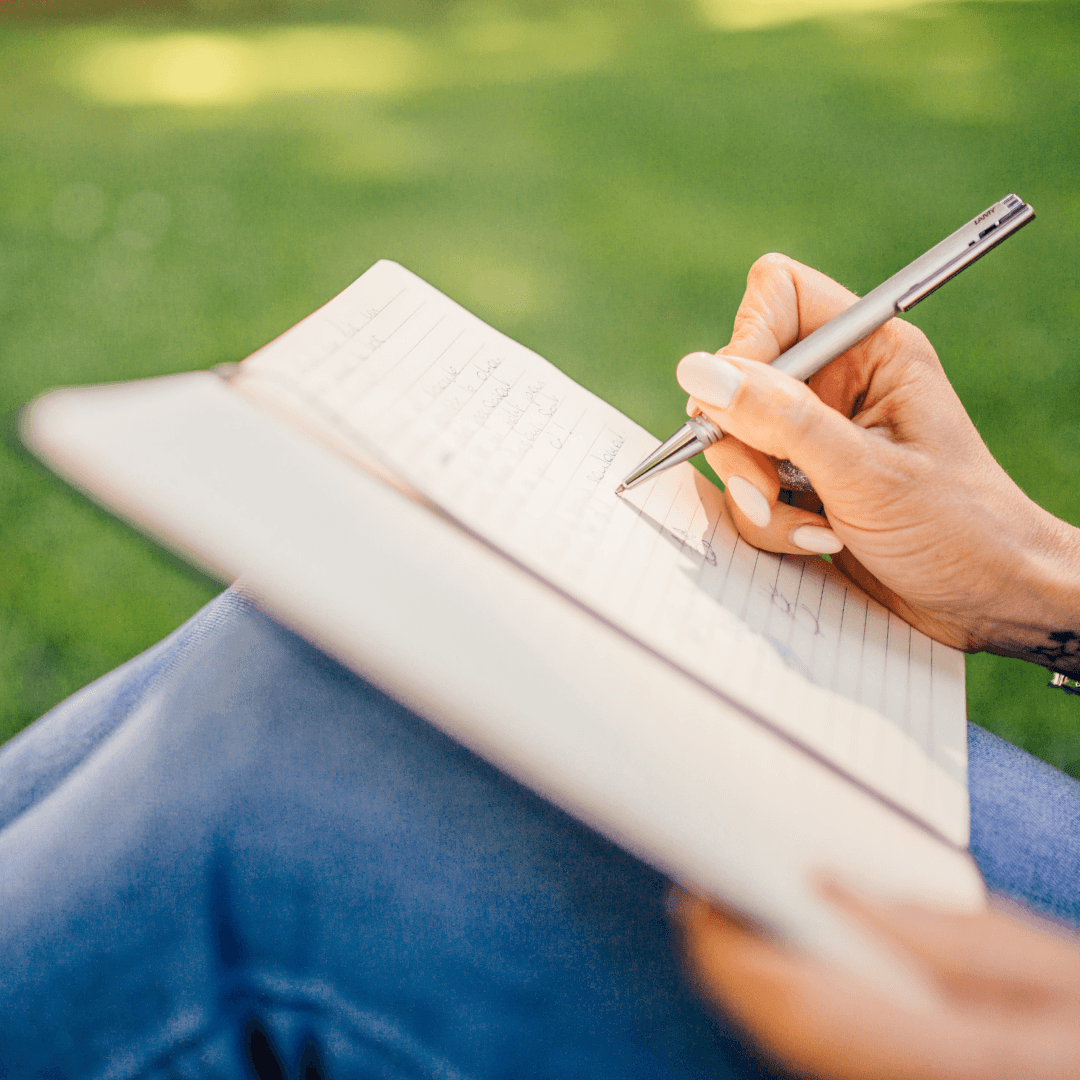
6. Journaling
Writing in a journal offers a secure and private setting for self-expression and introspection, making it an effective stress reliever.
A notebook is a therapeutic outlet for letting go of tension and gaining perspective when we put our thoughts, feelings, and experiences in it.
By expressing our worries, frustrations, and anxieties in our journals, we can release the pressure of our emotions.
By putting our ideas down on paper, we can become detached from them and obtain new insight and relief.
It can also assist us in locating patterns, catalysts, and underlying feelings that raise our stress levels.
Additionally, journaling can serve as a space for gratitude where we can express our appreciation for the good things in our lives.
This routine reorients our attention to the good stuff and fosters an attitude of gratitude. Additionally, journaling offers a chance for introspection and self-awareness.
We can learn more about ourselves and become more aware of our emotions and mental processes by periodically reflecting on our experiences, difficulties, and growth.
Keeping a journal is a cathartic and therapeutic process that encourages self-awareness, emotional release, and stress reduction.

7. Music Therapy
Music therapy is a potent stress reducer that utilizes the calming effects of music to encourage relaxation and well-being.
Stress reduction can be greatly influenced by listening to soothing music or playing an instrument. Music has a special power to stir our emotions and cause physical changes.
The body and the mind are calmed when we listen to relaxing songs or instrumental pieces.
Our pulse rate and breathing can be synchronized by the rhythm, harmonies, and melodies, which can help slow them down and promote relaxation.
In addition to improving our mood, music can help us avoid stressors and arouse pleasant feelings. It can provide a haven from the stresses of life and a means of escape.
Playing an instrument can be an active music therapy that lets us express our creativity and fully engage in the activity. It offers a concentrated, meditative exercise that can help us tune out tension and put us in a flow state.
Music therapy provides a potent means of reducing stress, promoting mental well-being, and promoting general relaxation, whether actively creating music or just enjoying listening to our favourite songs.

8. Digital Detox
A digital detox is an important stress reliever in the digital age. A significant impact on stress reduction and regaining a sense of balance can be seen when taking regular breaks from screens, social media, and electronics.
We may feel overburdened, preoccupied, and agitated due to constant connectedness and notifications.
We allow ourselves to focus on the present and partake in other worthwhile activities when we purposefully switch off technology.
It will enable us to step back from the continual pressures of work, social media comparisons, and information overload.
Instead, we can focus on things that improve our well-being, such as spending time with friends and family, engaging in hobbies, taking in the beauty of nature, or simply quieting our minds.
Digital detoxes allow us to reenergize, renew, and re-establish contact with our inner selves and the outside world. It can encourage more mindfulness, improve our capacity to be present and lessen the mental clutter frequently resulting from ongoing digital activity.
We may have a healthy relationship with technology, lower our stress levels, and free up more time for important things by adding frequent digital detoxes into our lives.

9. Pet Therapy
Spending time with animals as part of pet therapy, also known as animal-assisted therapy, is an incredibly powerful approach to lowering stress and improving general well-being.
Whether playing with a cherished pet or working at an animal shelter, being around animals has been shown to reduce stress levels and promote calm.
We can find solace, companionship, and unconditional love through interactions with animals, which profoundly impacts our mental well-being.
When you stroke an animal, oxytocin, a hormone that promotes relaxation and eases tension, is released.
Additionally, animals provide a nonjudgmental presence that fosters a secure environment where we can express ourselves and find consolation.
Also encouraging physical exercise and aiding in reducing stress and anxiety are activities involving animals, such as playing fetch or walking a dog.
In addition to reducing stress, pet therapy has therapeutic advantages such as enhancing mood, fostering social connection, and improving general well-being.
Animals provide special and soothing support that can greatly affect our mental and emotional health, whether we have pets or participate in programs that use animals as therapy assistants.
Conclusion
Remember that everyone is different. Therefore, it's crucial to discover the stress-relieving techniques that speak to you personally.
Try new things, learn new things, and stick to the routines that make you feel the most relief and delight.
Our general health and happiness depend on us including these stress-relieving activities in our daily lives.
By embracing these approaches, we may actively manage our stress, discover moments of peace and tranquillity, and create a more balanced and satisfying existence.
Remember that self-care and stress management are ongoing activities, so it's crucial to prioritize them consistently.
Explore these stress relief methods, determine which ones are most effective for you, and include them in your daily routine. It is merited for your well-being.
I trust you enjoyed this article about Effective Stress Relievers For Your Life. Please stay tuned for more blog posts to come shortly. Take care!
JeannetteZ
>>>Please click here to read my all-inclusive article about Lessons That Will Teach You All About Stress<<<
>>>Are you interested in Natural Healing And Stress Relief through Herbs? Please click here for my #1 Recommendation<<<
Your opinion is important to me.
Thoughts? Ideas? Questions? I would love to hear from you. Please leave me your questions, experiences and remarks about the Effective Stress Relievers For Your Life in the comments section below. You can also reach me by email at Jeannette@Close-To-Nature.org.
Disclosure
This post may contain affiliate links. I earn from qualifying purchases as an Amazon Associate and other affiliate programs. Please read my full affiliate disclosure.
You might also enjoy these blog posts:
Best Simple Ways To Relieve Stress And Anxiety
15 Best Ways To Relieve Stress In Kids
17 Tips On How To Reduce College Stress
18 Best Ways To Reduce Financial Stress
Why Do Cats Get Stressed And How Can We Help

